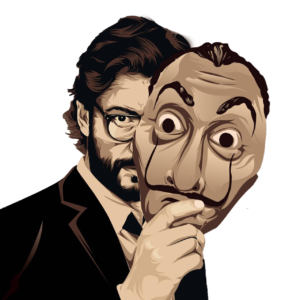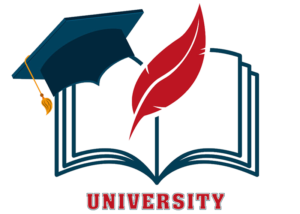
- April 12, 2023
- Education, Ethics, Faculty, Higher Education, Lifelong Learning, Staff, Student, University Culture
Much of the crisis in the quality of university education has this dichotomy as its background: the crisis of the relationship between the person who teaches and the person who learns. A university where professors and students must foremost be lifelong learners; and where the study programs are designed, modified, and transmitted daily based on innovations, new knowledge, new teaching and learning technologies, and all current influences generated by artificial intelligence and future technological developments.
You can’t ask for what you can’t give. Structural unemployment in the developed world cannot be alien to the higher education system. It is constantly expressed that the university is not forming the type of profile that the labor market demands. The university unemployment rate in Europe has been moving approximately between 5% and 40% depending on the country, and this is without counting a large majority of graduates who work in areas of employment directly outside their field of a college education. However, studies on potential employers of university graduates have shown that they are unaware of the types of professionals needed within ten or more years, the same average time for a professional’s secondary and college education.
Furthermore, the university, on the other hand, has often lived behind the backs of society, the productive system, and the science and technology system itself. But the problems of the university are also the problems of society. There is a co-responsibility between one and the other, as there is also co-responsibility between the subsystem of secondary education and higher education. This co-responsibility also affects the university culture, that teacher-student relationship which is part of the genuine culture of education: learning to generate and share knowledge.
 But here is where the greatest crisis lies. On the one hand, the constitution of an aristocracy of education: the university professor or the administrator; on the other, a student who seeks professional certifications more than learning. Students who want to study a career in the shortest time. Much of the crisis in the quality of university education has this dichotomy as its background: the problem of the relationship between the person who teaches and the person who learns. A university where professors and students must foremost be lifelong learners; and where the study programs are designed, modified, and transmitted daily based on innovations, new knowledge, new teaching and learning technologies, and all current influences generated by artificial intelligence and future technological developments.
But here is where the greatest crisis lies. On the one hand, the constitution of an aristocracy of education: the university professor or the administrator; on the other, a student who seeks professional certifications more than learning. Students who want to study a career in the shortest time. Much of the crisis in the quality of university education has this dichotomy as its background: the problem of the relationship between the person who teaches and the person who learns. A university where professors and students must foremost be lifelong learners; and where the study programs are designed, modified, and transmitted daily based on innovations, new knowledge, new teaching and learning technologies, and all current influences generated by artificial intelligence and future technological developments.
It is also essential that the programs have a content based on what the learner «should know» and not based on what the teaching person «knows» or «thinks he or she knows.» This would force «professors» to be permanently in the renewal of theories, techniques, applications or processes and in a real relationship with generating knowledge that occurs inside and outside the university context. But there is no doubt that when the behavior of these people is arrogant, a fine line is created between narcissism and egocentrism as a defense against ignorance.
Therefore, this change that the teacher must impose on themselves introduces a different relationship with the student since it transforms an educational philosophy, where learning and teaching is a shared, fascinating, intriguing, necessary adventure instead of an authoritarian, tiring, and boring. The university would thus respond to what was initially intended: a community of «scholars» of apprentices, a great family of knowledge.
 However, the university has relegated the person who learns. Today it is planned based on the academic body, more corporatism than academic. The physical spaces, the remuneration systems, the study programs, the structures, the organization of time, and other dimensions of university life respond preferably to the needs of the teacher and the administrator but not necessarily to those of the university’s teaching or administration. The latter is universalized. In some highly developed countries, this behavior is even more current. For example, the practice of many professors of using their students to prepare their research, books, and articles is well known. And in this, intrinsically, there is nothing wrong. But the names of these collaborators -many times main authors – either do not appear, or they are given a second place, or they do not occupy the prominent place in the publication that they deserve based on their work; other times, they are thanked in the fine print in the dark pages of an introduction. Where is this practice focused? Towards the teacher or the student? Is it ethical?
However, the university has relegated the person who learns. Today it is planned based on the academic body, more corporatism than academic. The physical spaces, the remuneration systems, the study programs, the structures, the organization of time, and other dimensions of university life respond preferably to the needs of the teacher and the administrator but not necessarily to those of the university’s teaching or administration. The latter is universalized. In some highly developed countries, this behavior is even more current. For example, the practice of many professors of using their students to prepare their research, books, and articles is well known. And in this, intrinsically, there is nothing wrong. But the names of these collaborators -many times main authors – either do not appear, or they are given a second place, or they do not occupy the prominent place in the publication that they deserve based on their work; other times, they are thanked in the fine print in the dark pages of an introduction. Where is this practice focused? Towards the teacher or the student? Is it ethical?
This behavior, academic «ethnocentrism,» is against the essence of any teaching-learning situation, whose first rule is ethics, honesty, and respect for others. The most painful thing is that this culture centered on the person who  teaches is giving way to another one that is even more dangerous for the survival of genuine college education: the culture centered on the person who administers. A university that, in part, begins to be dominated by professional politicians, unspecialized administrators, labor unions, bureaucratic organizations, and forms of management that equate an institution that disseminates and generates knowledge with a company that produces detergents or a multinational business that organizes travel.
teaches is giving way to another one that is even more dangerous for the survival of genuine college education: the culture centered on the person who administers. A university that, in part, begins to be dominated by professional politicians, unspecialized administrators, labor unions, bureaucratic organizations, and forms of management that equate an institution that disseminates and generates knowledge with a company that produces detergents or a multinational business that organizes travel.
The closest thing to university management is the management of health institutions as an administrative system of services to the «person.» In other words, a university cannot be strictly compared with a business enterprise, since a higher learning institution is not the same as managing merchandise. A commercial business moves primarily in the market’s short term, and the university moves in the medium and long-term schemes to manage knowledge transfer and creation processes. Also, while KPIs are more quantitative in most corporations, universities overcome qualitative measurement variables, especially in dealing with intangible knowledge and cognitive/affective transmission. In addition, the problem increases if it is considered that many universities assess appropriately, neither quantitatively nor qualitatively. If they obtain results, the changes do not occur or are so slow that reality has already changed.
Still, genuine faculty and students who want to preserve university education from mediocrity, politics, and irrelevant teaching and research work. They need to act. Returning to a learning community that integrates all university players should be the primary objective to begin to overcome the crisis. Suppose the attitudes and values prevailing in today’s university culture have not changed. In that case, it will be challenging for the university to overcome the education crisis and socioeconomic relevance for present and future generations.
References
Altbach, Philip G. and Reisberg, Liz. (2018). Global Trends and Future Uncertainties. Change. 50, 3-4, 63-67.
Miguel Angel Escotet. (2023). La universidad del futuro para una educación en red y a lo largo de la vida. En Santos Rego, M.A., Lorenzo Moledo, Mar y García Álvarez, Jesús (Eds.). La educación en red. Una Perspectiva multidimensional. Barcelona: Editorial Octaedro, 161-192.
Miguel Angel Escotet. (2009). University Governance. In GUNI & UNESCO (Eds.). Higher Education at a Time of Transformation. New York: Palgrave MacMillan, 126-132.
Miguel Angel Escotet. (2006). Governance, Accountability and Financing of Universities. Higher Education in the World 2006: The financing of universities. Basingstoke, England: Palgrave Macmillan, 24-40.
Huang, Futao, (2018). University governance in China and Japan: Major findings from national surveys. International Journal of Educational Development. 63, November 12-19.
_________________________
©2023 Miguel Angel Escotet. All rights reserved—permission to reprint with appropriate citing.